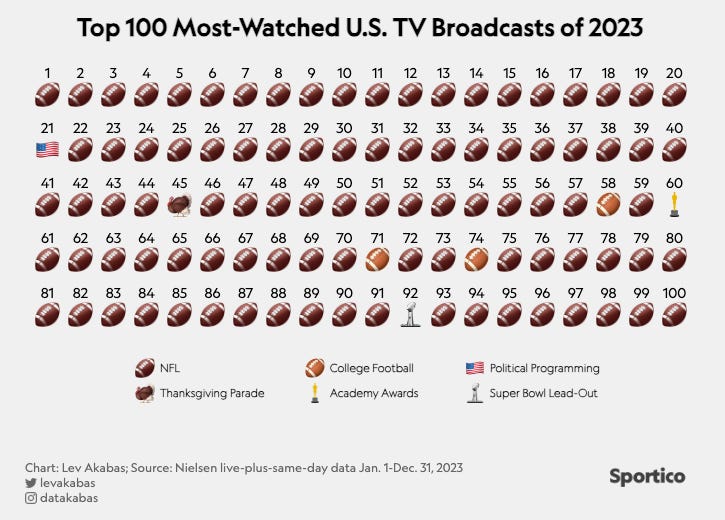‘May December’ Is Ripped from the Headlines. That’s Fine.
Plus: Michael Mann, assigned!
May December, which I talked about with Peter and Alyssa on Across the Movie Aisle a couple of weeks back, is an interesting picture at least in part because it has a ripped-from-the-headlines quality. Todd Haynes’s film—about an actress (Elizabeth, played by Natalie Portman) who wants to understand the lives of Gracie and Joe Yoo (Julianne Moore and Charles Melton, respectively) and what led the 36-year-old Gracie to seduce the 13-year-old Joe 23 years prior so she can make a movie about them—is inspired by the Mary Kay Letourneau/Vili Fualaau story that roiled the nation in the 1990s.
While I didn’t think the film entirely works, I was impressed by the sensitivity with which it treated Joe Yoo: he is the film’s most complex character because, in a manner, he’s its simplest. He’s been stunted, emotionally, by facing fatherhood at 13, by being the subject of a viral sex crime story, by having his personality overwhelmed by that of Gracie’s (and, later, Elizabeth’s).
Fualaau is less pleased with “his” portrayal. As he told the Hollywood Reporter:
“I’m still alive and well,” says Fualaau, now 40 and still living in the Seattle area, where the scandal unfolded. “If they had reached out to me, we could have worked together on a masterpiece. Instead, they chose to do a ripoff of my original story.
“I’m offended by the entire project and the lack of respect given to me — who lived through a real story and is still living it,” he adds.
On the one hand, I’m somewhat sympathetic to Fualauu, just as I was somewhat sympathetic to Amanda Knox’s annoyance with the movie Stillwater. You may remember that the director of that film, starring Matt Damon as a father striving to get his daughter out of a European prison, claimed Knox’s story was an inspiration for his film. Knox’s complaint was twofold: others were profiting off of her image and story and the story being told (both in Stillwater and other projects involving her) made her look guilty, when she was, in fact, innocent. I can’t imagine what it would be like to go to prison for a crime I didn’t commit, just as I can’t imagine what it would have been like to have been raped by a teacher as a teenager and forced to be a father a decade too early. I am sure I would also resent having my life mined for material in such a way.
On the other hand, I’m simply not sure there’s much to be done about it and vigorously protest the suggestion that such films should not be made without the approval and participation of the subjects in question. Some of the objections to the film come down to a simple inability to grapple with the text: It is impossible to read May December as a portrait of a loving, healthy relationship or one that makes Gracie out to be “sympathetic,” except in the sense that portraying people as three-dimensional characters rather than one-dimensional caricatures inherently creates “sympathy” for them. Fualauu may be vexed at people conflating him and Joe, but he is not Joe and Joe is not him: it’s an artist’s interpretation of what life might be like following a traumatic early sexual violation.
Fiction has always drawn from reality; indeed, all fiction draws from fact in some way or form. Roger Ebert famously described movies as empathy machines, and one way to generate empathy is by mining reality for material that makes a film’s conflict more understandable, more immediate, more relatable. Indeed, one reason why May December is an awards-season contender is because it is very much a critique of the sensationalized cinematic treatments such stories have typically received: As Haynes’s movie proceeds, Portman’s Elizabeth is revealed to be a hack, and when we see her project being brought to life in May December’s final moments, we realize she’s crafted something fit for mid-1990s-era Lifetime. Her behavior is shameful; how complicit we, the audience, are for hoovering up such material is something to be considered.
Again: Fualaau’s angst is understandable. I simply don’t think it should change how we perceive the work in question, given that it exists separately from him and his story even if it is inspired by his (tragic) story.
On this Friday’s bonus episode of Across the Movie Aisle, we discussed Ferrari and Michael Mann’s body of work. Hope you give it a listen!
Links!
Speaking of movies based on real-life stories: I reviewed The Iron Claw and Ferrari this week. Yes, sorry: I’m playing catchup on the awards-season material. Apologies to all of you who were hoping for a review of Night Swim.
Christopher Nolan was in the midst of a Peloton class and the instructor called out Tenet for being “two hours of her life she’ll never get back,” which is something you could see happening in a Coen Brothers movie but probably not in a Christopher Nolan movie.
Every year a version of this infographic gets released and every year it is absolutely staggering:
I almost wrote my whole newsletter this week on the insanity of the Alliance of Women Film Journalists annual awards, particularly the ridiculous “Most Egregious Lovers’ Age Difference” category, which initially included Harrison Ford and Phoebe Waller-Bridge in the latest Indiana Jones movie (spoiler: they were not lovers) and the winner of which was Cillian Murphy and Florence Pugh for Oppenheimer even though Pugh is roughly the age of the character when she died by suicide and Murphy was playing a character who ranged in age from 20 to 70. Ridiculous nonsense. The whole category is a disaster, really, but I am heartened by the fact that roughly everyone on social media was making fun of it. Real “vibe shift” moment in terms of our tolerance for inanity. (Good news though! Julianne Moore was nominated in the category “Grand Dame for Defying Ageism” for May December, in which she plays a woman who sleeps with a child. Maybe some people did miss the point of that movie after all.)
Assigned Viewing: Collateral (Paramount+)
Look, I love introspective Michael Mann as much as the next guy, but sometimes you just want to see him stage a masterful shootout. And Collateral is full of them. Sure, none are as iconic as Heat’s Los Angeles bank robbery, but they’re still pretty great: vibrant and kinetic and filled with a sort of low-key menace.








I knew nothing of the events covered in "May/December" because I didn't watch Nancy Grace or the tabloid press. So I came into the film with a blank slate. In my past I have worked with sexually abused kids so I was wary about the handling of the content.
While I didn't love or hate the film I really liked the handling of the complexity of the story. We culturally ignore the sexual abuse of boys except when done by Catholic Priests. Her treatment was the exception to the rule for female abuse of boys which passes almost unnoticed in our society. Probably the only reason she was punished was because of the grotesque consequences of the rape. Male abuse of boys get stigmatized and punished severely but most boys abused by women get "bragging rights" from peers and society assigns it more as a rite of passage than the traumatic and harmful event that it is. And the damaging effect was made clear in the film.
I only bothered to watch because of the cast and because it was a Todd Haynes film.
I agree with most of what you wrote. Having said that, my wife and I both found May/December grotesque. We utterly hated it, and are sorry it was made. We agree with the comments of the real life victim as well. Now, he will be eternally victimized because of this piece of trash. We hope it wins no awards at all. Maybe a Razzie. Or several.